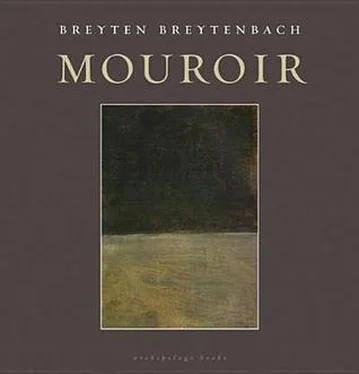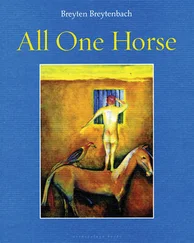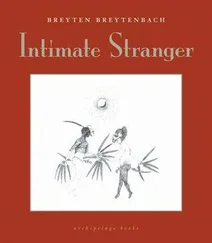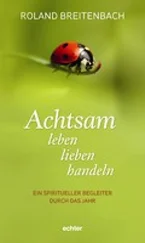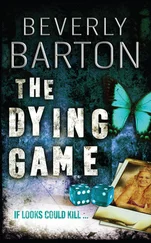Why for a poet? We all know of examples in the world of the grave for the unknown soldier. Apart from perhaps wishing to piously respect the unknown, these graves speak to us of patriotism, or nationalism, even of praising the military virtues. Are they not also intended to increase the cohesiveness of a nation state? And are they not used sometimes to whitewash the past? The tombstones of history. . For all soldiers are anonymous. (I’m not speaking of the generals: have you ever come across the grave of the unknown general or the unknown dictator?) Indeed, it is not the soldiers who build cenotaphs or monuments to the unknown number, but the politicians who ever survive indestructibly. At the other end of the scale, but it is really the same end, I’ve heard of a statue commemorating the anonymous political prisoner. He doesn’t need that, and the least we can do for him is to give him the face he struggled for. (Is the anonymous torturer ever celebrated other than by the poisonous stone in his chest?) And Paul has written of a pedestal to the unknown and absent god. .
For us it is different. Poets aren’t gods, neither are they absent. Poets aren’t incarcerated or tortured for their poetry — at least not very often: the powers that be, have been, shall be, prefer to lobotomize their poetry, and it is a more refined form of torture. Poets aren’t a nation. Poets aren’t a class. Workers do it/students do it/the bourgeois do it/even kings and beggars may do it/so let’s do it. . Let’s talk tough! And yet we are everywhere taking our maggots for a walk. .
We are conceiving of a living grave for the poet, be he dead or alive or in limbo. Isn’t death only an enjambment of the poetic line? Poets form no ideological group. We are made up of. . the attempt to make — love poetry, hate poetry, mind poetry, finger poetry, poetry of resistance, poetry of commitment, poetry of the belly-crawl, empty poetry, poetry of poetry: we try to make that from which we’re made. And sometimes a little more. Maybe the poet has something of the soldier, the political prisoner, the god — who knows, even the torturer? But he is a human with a drumskin perforated by sounds and sights and feelings. Leaking words. The poet is just a human without a skin. Isn’t that why he needs so much paper? Let us make of the grave a sunken garden, a seed bed of… agitation for the unknown. That which links us all is exactly the unknown. We are all covered by that absence of skin.
Why for the “unknown” poet? Surely to be known or unknown is entirely relative? Is anyone ever completely unknown? And what is known? Inevitably this may well be so: we don’t know of the unknown ones. . But beyond that, in every poet there is the poet unknown. And then, even the most known is for a time at least the unknown one. It may be during his body’s lifetime and he may be uncovered after its death; more often the known become unknown and one after the demise. The grave is thus for the UP because that is (i) either what we are, (ii) or what we were, (iii) or what we unavoidably shall become, (iv) or finally what we ought to be. The beauty is that one can put in such a grave what one wants and take out what he expects: Sadness. Joy. Even if he only walks by to say:
(t)here
alas
lie
I.
It is moreover the UP who feeds the flames of poetry: in his unknownness and unknowingness he is pure. It will be a grave not merely for Homer and Pushkin and David and Eleitis, but also for Mandelstam and Camões and Lamourt Lasouris and Ivan Ivanovitch; not only for Victor Hugo but also for Villon and Don Espejuelo and Lautréamont and Brecht and Jean Dumond and Ukwezi and Hugo Victor; not just for Mao and Lorca but also for Tu Fu and Li Po and Jane Smith and Titloup and Oma Gumgum. . All the unknown from continent to continent. Yes, from our albocentricity nearly everything outside ourselves will be considered “unknown” — not so much from ignorance as a self-induced blindness: “taste” we have, one of the last bastions of colonialism. . The UP then is the incalculable and ever-renewing potential. Alors : Up the UP!
Why on earth Rotterdam?
Whereas there are a host of reasons for, the most potent one is probably: why not in Rotterdam? True, R’dam is a capital for poetry — one doesn’t say the , because nothing prevents the scooping out of perfumed graves elsewhere: they tend to multiply anyway: they have a propensity for self-multiplication. But R’dam is neutral (?) whilst being open and attentive to poets with their diseases — and one hopes, poetry — as the efforts of the Rotterdamse Kunststichting have shown. Already they’ve provided us with some rituals and rites: we came there from afar and also from Amsterdam, some as ambassadors and some as petitioners and some just as posturers or gypsies. . to declaim our statements from the State of Poetry. To return home with instantly violated treaties and compromises: new poems. Indeed, the Poetry International is our annual Skin Market. . We are the halt and the lame come to wait for the angel to move the waters so that we may plunge in and be absolved, cured — cured of our condition humaine ? Of course, most of us can’t swim and there are crocodiles in the pool. . Never mind!
Who shall foresee the effect the good yeast of unknown poetry may have on the dour dough of the workbent city of Rotterdam? Imagine the raising in the pans!
Let us come to lay our credentials in the burning grave of the Unknown Poet.
The Project
The location. Will the heavens open? Will one be rewarded with a vision. .? Ideally one sees the sepulchre of the UP — anonymous, fictitious? — somewhere on the windblown polders like that of an Ovid. . on the highest balcony of the tallest skyscraper in town. . nested and open to the birds in a tree. . as a foaming white tomb next to an atomic reactor of which it is the offspring and mirror image. . built into the back wall of a night club. But that means putting a specific or exclusive face on our UP: and although we want to endow him with a face we want that to reflect every unknown poet, all of us, Jan Alleman. Thus I believe it is best situated in some public enclosure or thoroughfare of R’dam — within the confines of De Doelen — on the Kruisplein — along the Lijnbaan — in such a way that it can become a rallying point easily accessible, a place of pilgrimage where resident and visiting poets may leave their ex-voto.
What should it look like ? Let not the heavens decide. Solicit painters and sculptors for ideas. Why not in the form of a competition? There are alternatives. I saw a glass-domed structure (sunken or raised) underneath which all the unknown poems, like insects disposing of words, were exposed; I saw a commemorative statue at the feet of which wreaths were laid with every petal of every flower a poem; I saw an eternal flame periodically rekindled seriously but not solemnly, with decorum and with joy, in which poems can be burned or sublimated; I saw a headstone with some such inscription as:
Here lies a body
Eaten by words;
From such earth
Springs poetry!
And there were the Tibetan prayer flags beating the wind with every flutter of cloth a stanza.
Then I saw the dedication, the ceremony of being confined to Mother Earth in a gaily decorated open coffin, during a Poetry International Festival. Will that coffin, those relics, not be paraded every year on Poetry Day? The bier was filled with poems written specially for the occasion, with manuscripts and volumes of known and unknown writers — and these were periodically removed to be housed in a museum. A band was playing — surely it was the “Rote Fanfare”? And there, among the bearers of pall and slip, were the critics, the historians, the publishers, the recital artists. . Because it was a project with branches! During visits by poets from elsewhere and every year during the Poetry International the flame was rekindled. Imagine the funerary orations! Poets known and unknown were encouraged to continue contributing to the body of the UP . A periodical containing these verses, called The Poet Unknown , was published by the Rotterdamse Kunststichting. The editor was a poet with the illustrious title of Guardian of the Grave of the Unknown Poet, and she or he was a Dutch versifier, at times, for the editorship was held in rotation, relieved by a visiting foreign poet, a poor soul in transit, a temporary resident there perhaps on a scholarship, even invited there especially for that purpose. The poets participating were inducted into The Order of the Poetic Grave, or The Fraternity of Unknown Poets, or simply The Words of the Unknown, perhaps just The Unknown. Each member received a distinctive insignia, a button depicting (I couldn’t see so clearly any more) an ardent flame. . or an image of the statue. . And all. .
Читать дальше
